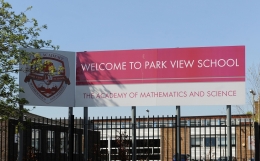
Legislation stating schools must hold a daily "broadly Christian" assembly is at risk of being abolished.
The National Governors' Association (NGA) has declared the law, as set out under the 1944 Education Act, to be "meaningless", and has urged the government to put an end to its application in non-faith schools.
"Few schools can or do meet the current legislative requirement for a daily act of collective worship, partly because there isn't space in most schools to gather students together, and often staff are unable or unwilling to lead a collective worship session. There is also the added issue that worship implies belief in a particular faith - if the 'act of worship' is not in your faith then it is meaningless as an act of worship," a policy statement from the NGA reads.
"Removing the collective worship from the remit of schools that are not faith schools would not prevent them from holding assemblies that address a whole range of topics, including faith and belief."
However, the NGA has insisted that its call for policy change "does not alter our position on religious education; it is important that students should continue to be taught a broad and balanced curriculum that encourages a knowledge and understanding of all faiths".
Emma Knights, Chief Executive of the NGA, highlighted this in an additional statement in response to The Telegraph's article on the matter. "Worship for those of religious belief is very meaningful; and it is at the heart of schools with a religious character. However it is not reasonable to expect schools which are not faith-based to conduct a daily act of collective worship," she said.
"The National Governors' Association encourages all schools to put spiritual, moral, social and cultural development of pupils centre stage."
The NGA's position has reportedly been welcomed by secular campaigners. The Telegraph reports that the British Humanist Association has called for more "inclusive" assemblies that support the "development of all pupils and staff" in the context of a multi-cultural society.
According to Chief Executive Andrew Copson: "In a plural and fair-minded society that cares about children and their development, schools should be holding inclusive assemblies that forward the spiritual, moral, social and cultural development of all pupils and staff, regardless of their religious or non-religious beliefs."
A 2010 BBC poll found that 64 per cent of adults would prefer the law on collective worship to be abolished, but the Church of England, which educates an estimated one million children in schools across the UK, has criticised a move to end Christian assemblies.
It would "deny children the opportunity to experience something they wouldn't experience elsewhere in their lives," the Church says.
"Teachers and families value the special dimension worship brings to church school life," the C of E website adds, underlining that it allows both pupils and staff the opportunity to "Foster respect and deepen spiritual awareness, reflect on the character of God...[and] affirm Christian values and attitudes".
It inisists that collective worship provides "an important contribution...to pupils' development as well-rounded individuals".


















